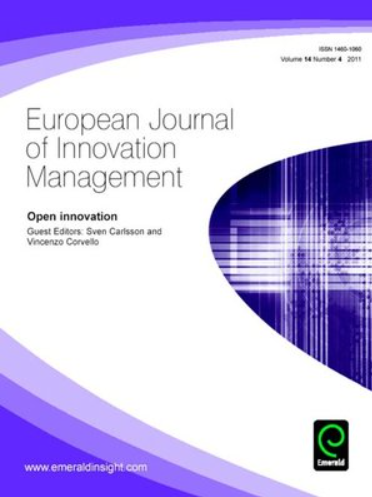经济层面技术差异和所有权特定技术差异下的研发国际化比较分析
IF 5.7
3区 管理学
Q1 BUSINESS
引用次数: 0
摘要
目的 本研究旨在探讨在风力涡轮机行业中,经济层面技术差异的后来者与所有权特定技术能力差异的企业在研究与开发(R&D)国际化方面是否存在差异。研究结果本研究发现,来自技术先进经济体的后来者在国际共同发明(INCO)方面的表现与早期领先者没有差异,但在另一个指标--外国发明人的本土所有权(NOFIs)方面确实存在差异。此外,经济层面技术差距的后来者在 INCO 和 NOFI 两项指标上都表现出显著差异。这些结果表明,来自技术先进经济体的后来者不仅具有后来者的性质,促使他们从外国经济体寻求知识,而且还从其先进的本土基础中获益,从而促使他们进行国际化并获得具有成本效益的研发资源。此外,研究结果表明,与来自先进经济体的企业相比,来自技术新兴经济体的后发企业更倾向于参与研发国际化,以增强自身的本土基础。 原创性/价值 本研究通过引入新的视角,扩展了有关研发国际化的文献。它区分了经济层面技术差异下的后发企业与所有权特定技术能力差异下的企业在研发国际化趋势上的一些明显区别。此外,本研究还将研发国际化分为两个关键维度:INCO和NOFI。这些发现有助于全面了解在经济层面的技术差异和所有权特定技术差异下企业研发国际化的差异。这些发现强调了不同经济体的技术优势和所有权的具体优势,为决策者驾驭全球创新活动提供了有价值的见解。本文章由计算机程序翻译,如有差异,请以英文原文为准。
Comparative analysis on R&D internationalization under economy-level technological disparities and ownership-specific technological differences
PurposeThis study aims to investigate whether there are disparities in research and development (R&D) internationalization between latecomers from economy-level technological disparities and firms with ownership-specific technological capability differences in the wind turbine industry.Design/methodology/approachEmploying econometric analysis based on patent indicators, the authors examine the patent data assigned by the United States Patent and Trademark Office (USPTO) to the technologically advanced economy and the technologically emerging economy.FindingsThis study finds that latecomers from technologically advanced economies behave with no difference from early leaders in terms of international co-invention (INCO) but do show differences in another indicator – native ownership of foreign inventors (NOFIs). Additionally, latecomers from economy-level technological disparity show significant differences both in both INCO and NOFI. These results indicate that the latecomers from technologically advanced economies not only possess the nature of latecomers which motivates them to seek knowledge from foreign economies but also benefit from their advanced home base, thereby prompting them to internationalize and access cost-effective R&D resources. Moreover, the results demonstrate that latecomers from technologically emerging economies are more prone to engage in R&D internationalization to augment their own home base compared with firms from advanced economy.Originality/valueThis study extends the literature on R&D internationalization by introducing novel perspectives. It distinguishes some apparent distinctions of the tendency of R&D internationalization between latecomers under economy-level technological disparity as well as firms from ownership-specific technological capabilities differences. Additionally, this study disaggregates R&D internationalization into twin key dimensions: INCO and NOFI. These findings allow for a comprehensive understanding of the differences in the firm's R&D internationalization under economy-level technological disparities and ownership-specific technological differences. These findings offer valuable insights for decision-makers in navigating global innovation activities by highlighting the diverse economy-level technological advantages as well as ownership-specific advantages.
求助全文
通过发布文献求助,成功后即可免费获取论文全文。
去求助
来源期刊
CiteScore
10.40
自引率
17.60%
发文量
107
期刊介绍:
The subject of innovation is receiving increased interest both from companies because of their increased awareness of the impact of innovation in determining market success and also from the research community. Academics are increasingly beginning to place innovation as a priority area in their research agenda. This impetus has been partly fuelled by the Economic & Social Research Council (ESRC) who have designated innovation as one of nine research areas in their research initiative schemes.

 求助内容:
求助内容: 应助结果提醒方式:
应助结果提醒方式:


